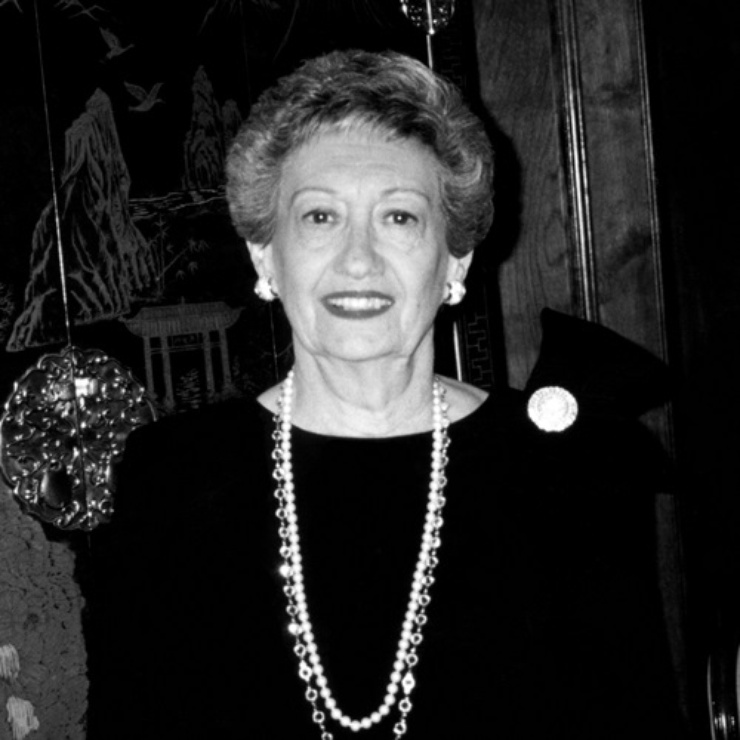-
 This photo of Mady Deutsch was featured in the book celebrating the 10th anniversary of Holocaust Museum Houston in 2006.
This photo of Mady Deutsch was featured in the book celebrating the 10th anniversary of Holocaust Museum Houston in 2006.
Germany’s invasion of Hungary in March 1944 signaled a cruel and abrupt end to Mady Deutsch’s childhood in Beregszász. In May, just weeks after Mady’s 14th birthday, she was arrested along with her parents Israel and Charlotte (b. Sarolta) and her brother Endre. The town’s Jewish families were given ten minutes to gather their belongings, vacate their homes and report to a makeshift ghetto.
Two weeks later, Mady’s family was sent to Auschwitz where Mady and Charlotte were separated from Israel and Endre. Although everyone had been weakened by the harrowing three-day rail journey, during which they were given no food and only one bucket of water for each crowded carload, Charlotte told her daughter to stand tall when they arrived at the camp. She had accurately surmised that stronger inmates were being separated from weaker ones and she assumed the heartier ones would be sent to work. After their heads were shaved and they received sack-like dresses, Charlotte and Mady spent only a week at Auschwitz. Then they were transported to a munitions factory near Breslau, Germany where they toiled for 12 hours each day and subsisted on starvation rations. In April 1945, they were sent to the front to dig foxholes for Axis soldiers. Weakened almost beyond endurance, Mady was able to carry on only because her mother shared some of her meager rations and whispered constant encouragement.
After Russian troops liberated them in May 1945, Mady and Charlotte returned to their hometown only to find that their house had been taken over by a non-Jewish family and both Endre and Israel had been murdered. Despairing, Mady’s mother suggested that she and her daughter take their own lives. Now it was Mady’s turn to urge her mother to persevere: “I told her that I had just turned 15. I was very young and all I have known is a lot of misery and a lot of pain. I would like to go on living and see if there is anything nice, anything better in this world.”
In 1949, after spending four years in a camp for displaced persons in Munich, Mady and her mother came to the United States where they felt that they “were finally free.” They initially settled in Pittsburgh and later moved to New York City. Mady married fellow Holocaust survivor Tony Deutsch in 1956 and started a family. Ever an optimist, she strove to find beauty and joy in life. She regularly took her two sons, Mark and Robert, to art museums and flower gardens and later pursued a career in interior design.
After their children were grown, Mady and Tony moved to Houston where Mady worked as an interior decorator for Blum’s furniture store and later helped Tony in his wine and liquor store. For 20 years, Mady regularly spoke about her wartime experiences in schools, libraries and churches. She was an early and enthusiastic supporter of Holocaust Museum Houston and played a formative role in the development of its Permanent Exhibition, conducting research and later helping to establish the Docent Committee.
It was not until 1997 that Mady was able to confirm the details of her brother’s and father’s deaths. The knowledge gave her some peace as she neared the end of her life. She died on January 17, 2001 after a courageous nine-year battle with cancer.
Parents:
Israel Fischer, d. Gross-Rosen, 1944
Charlotte (b. Sarolta) Neiman Fischer, survived
Siblings:
Endre (Bandi), d. Gross-Rosen, 1944
